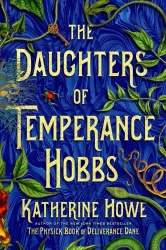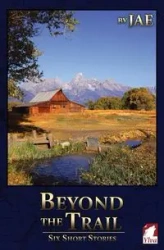Literatura piękna po angielsku na B
( ilość produktów: 6 )Książki obcojęzyczne - B : Literatura piękna

Blonde - Joyce Carol Oates
- Autorzy:

Bonita - Angela Solstice Mayah
- Autorzy:
Nowy wymiar czytania – książki po angielsku na B
Serdecznie zapraszamy do naszej kategorii „Literatura angielska na B” – unikalnej sekcji, gdzie znajdują się książki po angielsku najróżniejszych autorów. Wszystkie oferowane tutaj książki zaczynają się na literę „B”. Publikacje te zostały stworzone przez wielkich mistrzów pióra, prezentują różnorodność stylów i gatunków, pozwalając czytelnikom na rozwijanie swoich umiejętności językowych poprzez kontakt z wyszukaną literaturą.
Powieści po angielsku na B to doskonała propozycja dla osób, które są już biegłe w języku angielskim lub dopiero uczą się tego języka. Umiejętność czytania anglojęzycznych powieści pomoże Ci polubić język angielski jeszcze bardziej, a także rozwinąć swoje umiejętności lingwistyczne.
Perły literatury angielskiej na B
Książki po angielsku na B to zbiór powieści i innych form pisanych prozą po angielsku, które łączą w sobie piękno języka i niezwykłość treści. Wśród nich znajdują się pozycje znanych i cenionych twórców, których prace już od wielu lat cieszą się uznaniem czytelników na całym świecie.
Czytaj w oryginale i rozwijaj swoje umiejętności językowe
Czytanie książek w języku obcym to skuteczny i jednocześnie niezwykle przyjemny sposób na naukę nowych słów i gramatyki. Literatura po angielsku na B daje Ci szansę na poszerzenie słownictwa, utrwalanie gramatyki oraz zanurzenie się w autentyczne, literackie środowisko językowe. Ponadto, książki po angielsku na B pozwolą Ci znaleźć się blisko źródeł literatury, zrozumieć niuanse języka, a także poczuć klimat odległych krajów.
Powieści po angielsku na B, które można znaleźć w tej kategorii, stanowią doskonałe źródło szlifowania kompetencji czytelniczych w języku angielskim. Niezależnie od tego, czy dopiero zaczynasz swoją przygodę z językiem angielskim, czy już od dawna poruszasz się w nim swobodnie, na pewno znajdziesz tu coś dla siebie. Od klasycznych powieści, przez biografie historyczne, po współczesne dreszczowce – każdy miłośnik literatury znajdzie tu coś interesującego.
Inwestuj w swój rozwój z Matfel.pl
Proza po angielsku na B to prawdziwa gratka dla tych, którzy cenią sobie nie tylko proces czytania, ale również chcą poszerzyć horyzonty językowe. Bogactwo oferty księgarni Matfel.pl sprawia, że każdy, niezależnie od swojego poziomu angielskiego, znajdzie tu coś dla siebie. Książki po angielsku na B to wyjątkowa okazja, by pogrążyć się w fascynującym świecie literatury i jednocześnie efektywnie rozwijać swoje umiejętności językowe.
Nie czekaj i zapoznaj się z bogatą ofertą książek po angielsku na B dostępną na Matfel.pl. Wybieraj spośród znanych klasyków, nowości literackich oraz kultowych pisarzy. Książki po angielsku na B to pasja, która dostarcza zarówno rozrywki, jak i edukacji językowej. Przenieś się do olśniewającego świata literatury angielskiej już dzisiaj i pozwól, by książki po angielsku na B zachwyciły Cię swoją magią i wyjątkowością! Zapraszamy do zapoznania się z naszą ofertą i życzymy miłego czytania!








